Chemical Engineering

Who we are
We work hard to shape scientific minds in a familial, friendly, tight-knit atmosphere. You’ll be made to feel welcome from the very first day, forming strong bonds with your professors and fellow students that will benefit you professionally and personally.
What we do
In focused research groups, students and faculty within WPI’s Chemical Engineering Department go beyond the classroom to solve real-world problems, continuing to make discoveries in areas like environmental protection, renewable energy, and life sciences, through research and development of new technologies, processes, and materials.
Calendar
See More Events| Area of Study Filter by: | Bachelor | BS/MS | Master | PhD | ||
|---|---|---|---|---|---|---|
| Chemical Engineering | bachelor | master | phd | |||
| This degree is eligible for a dual bachelor + master option. Learn More | ||||||
| Chemical Engineering (Professional MS) | master | |||||
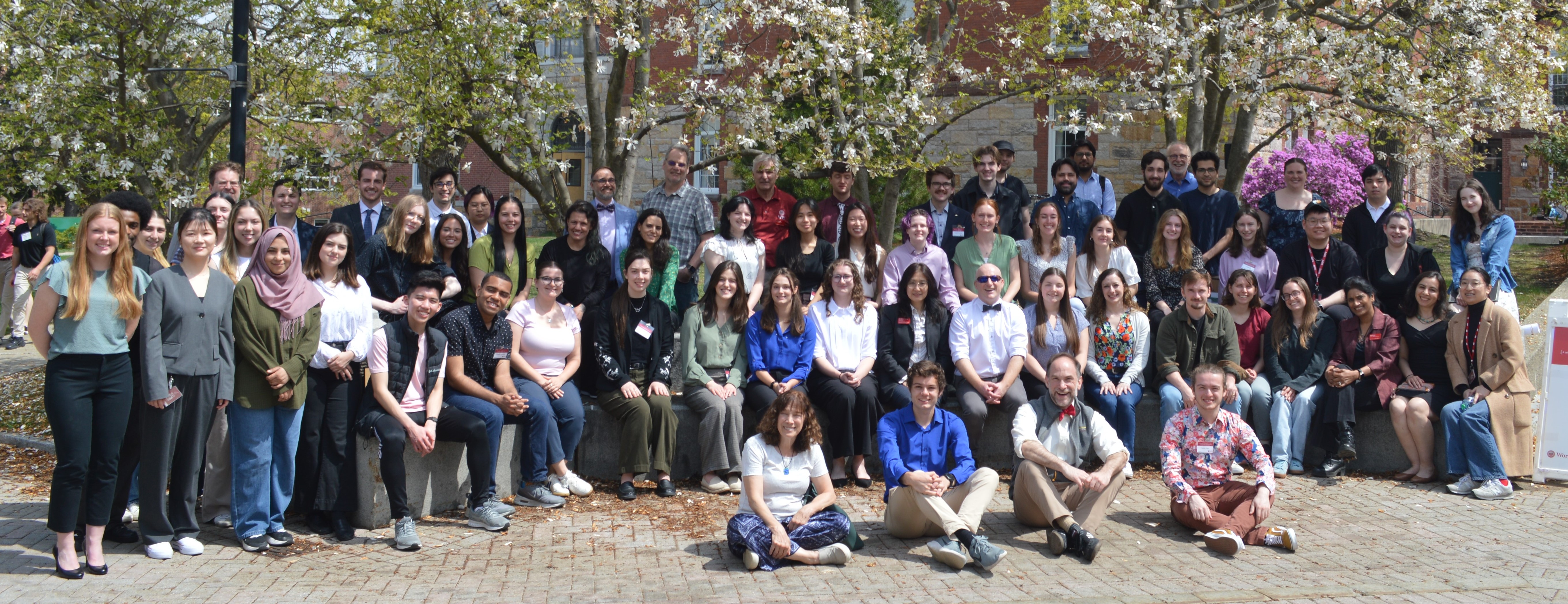
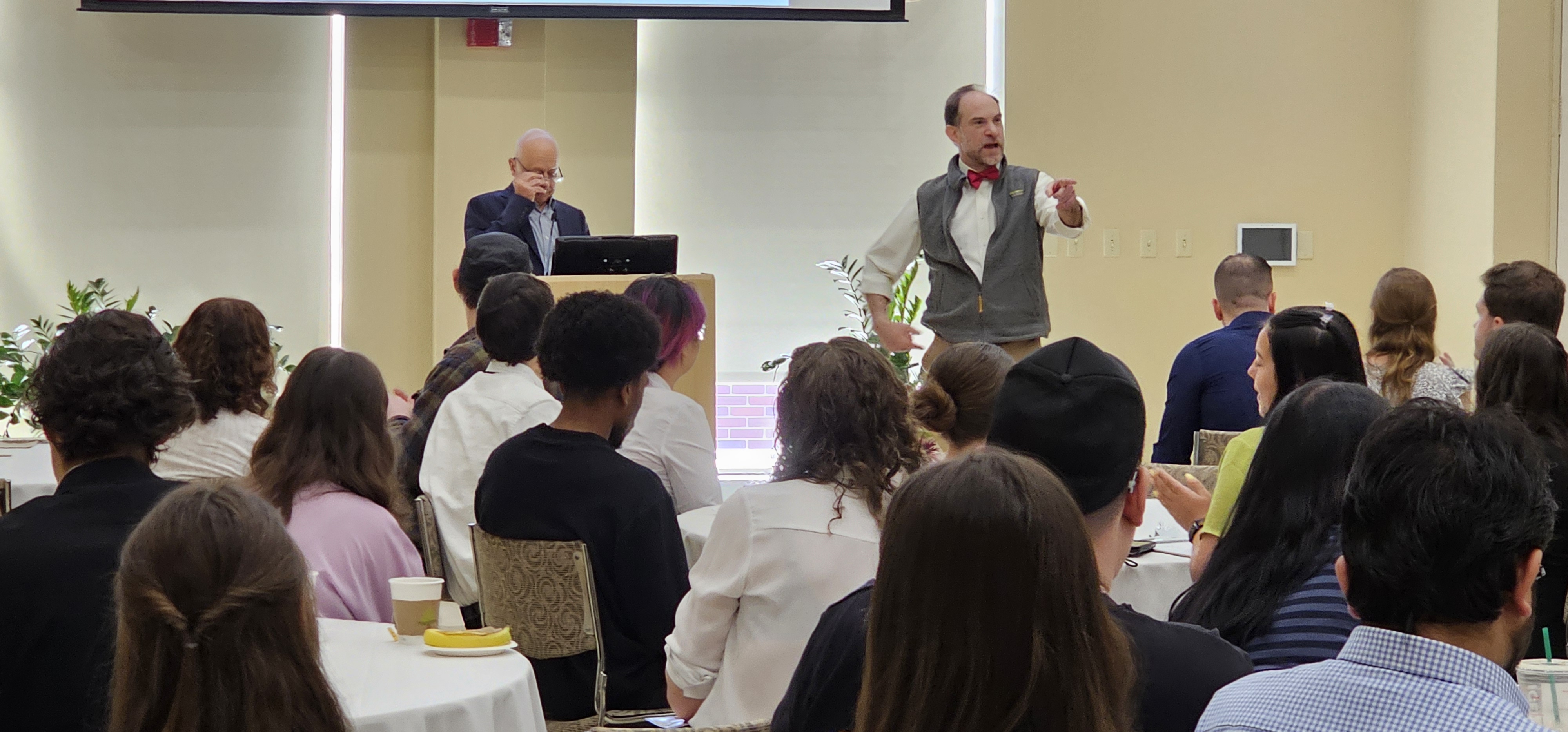
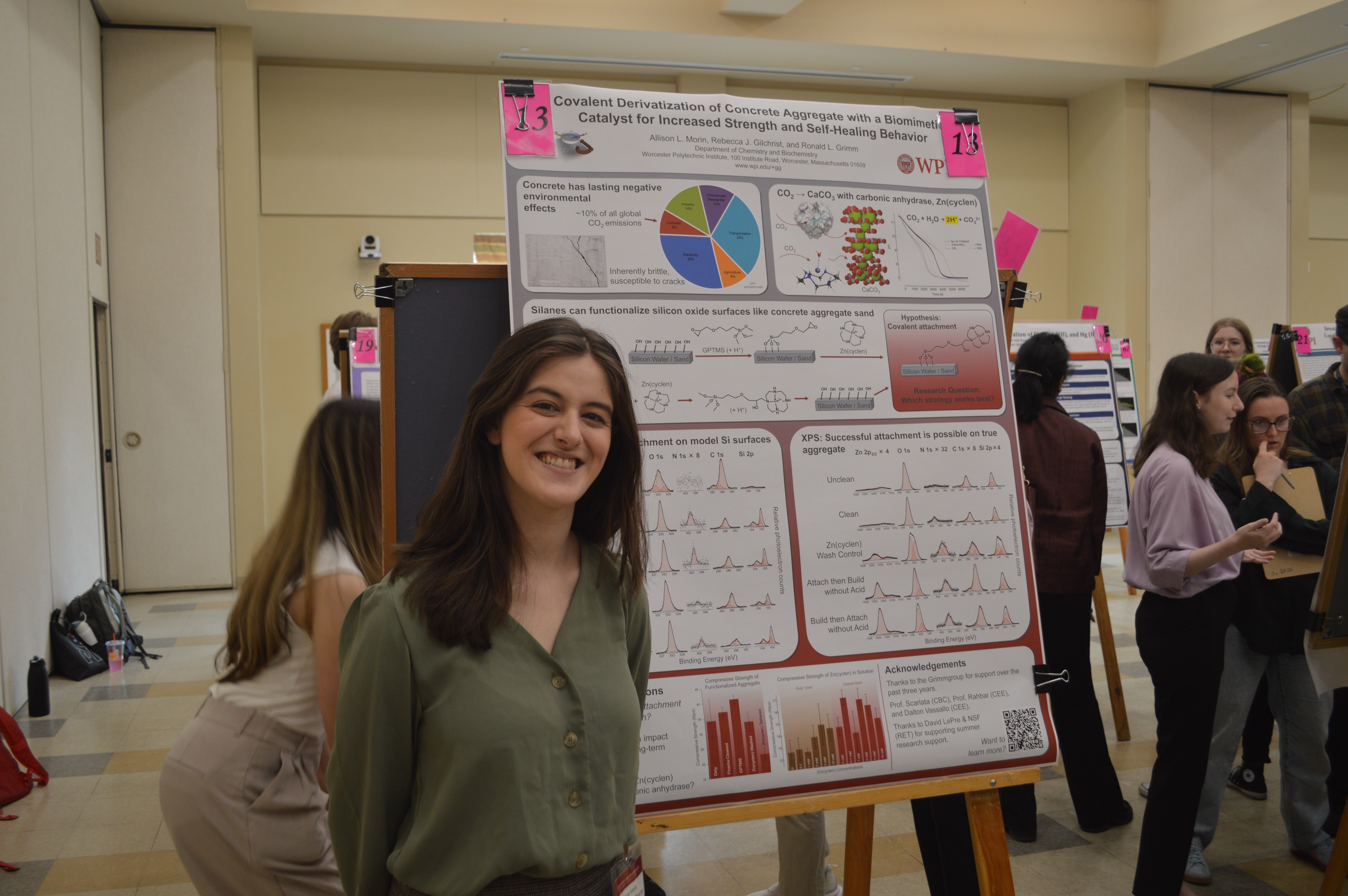
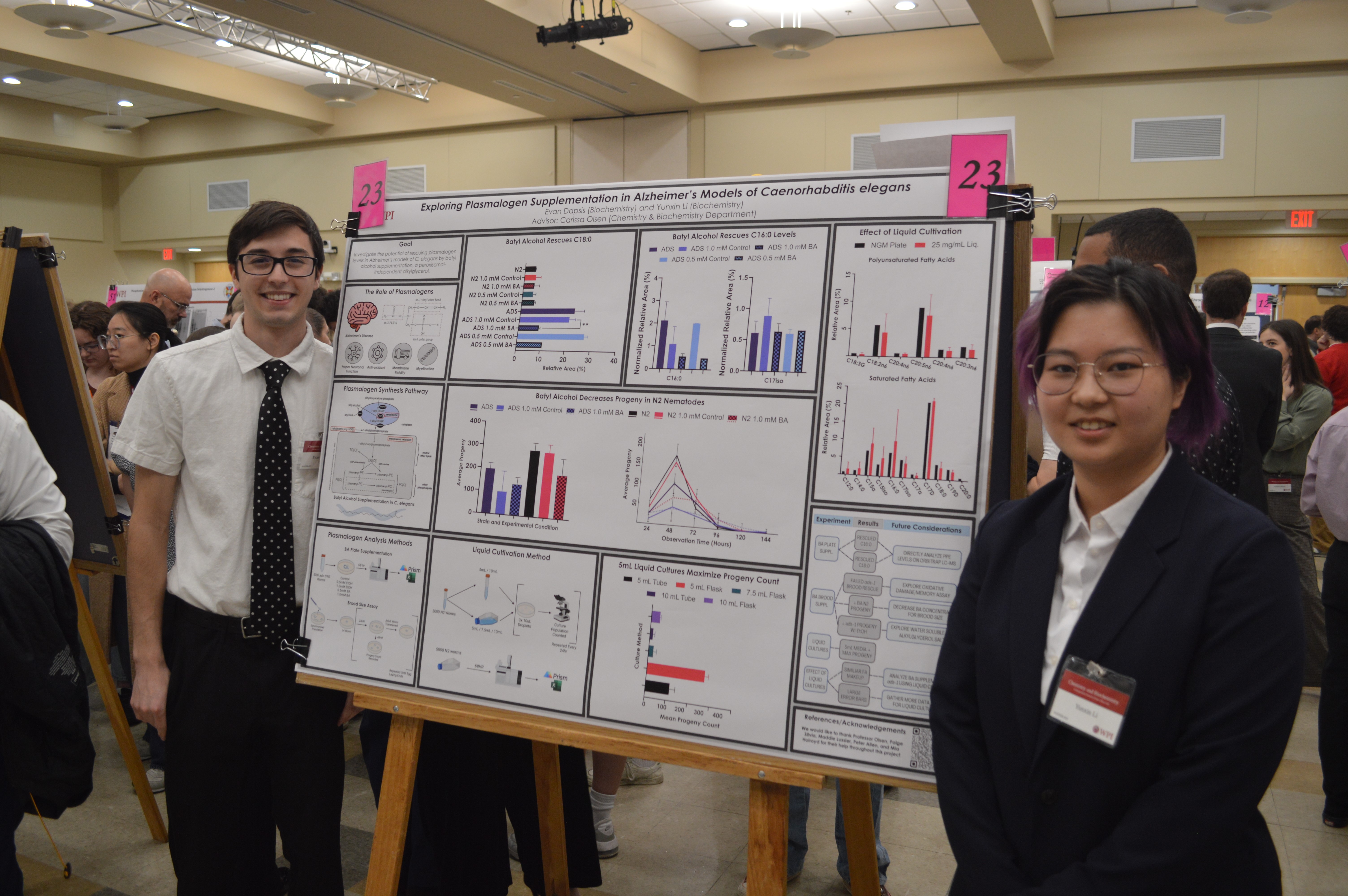
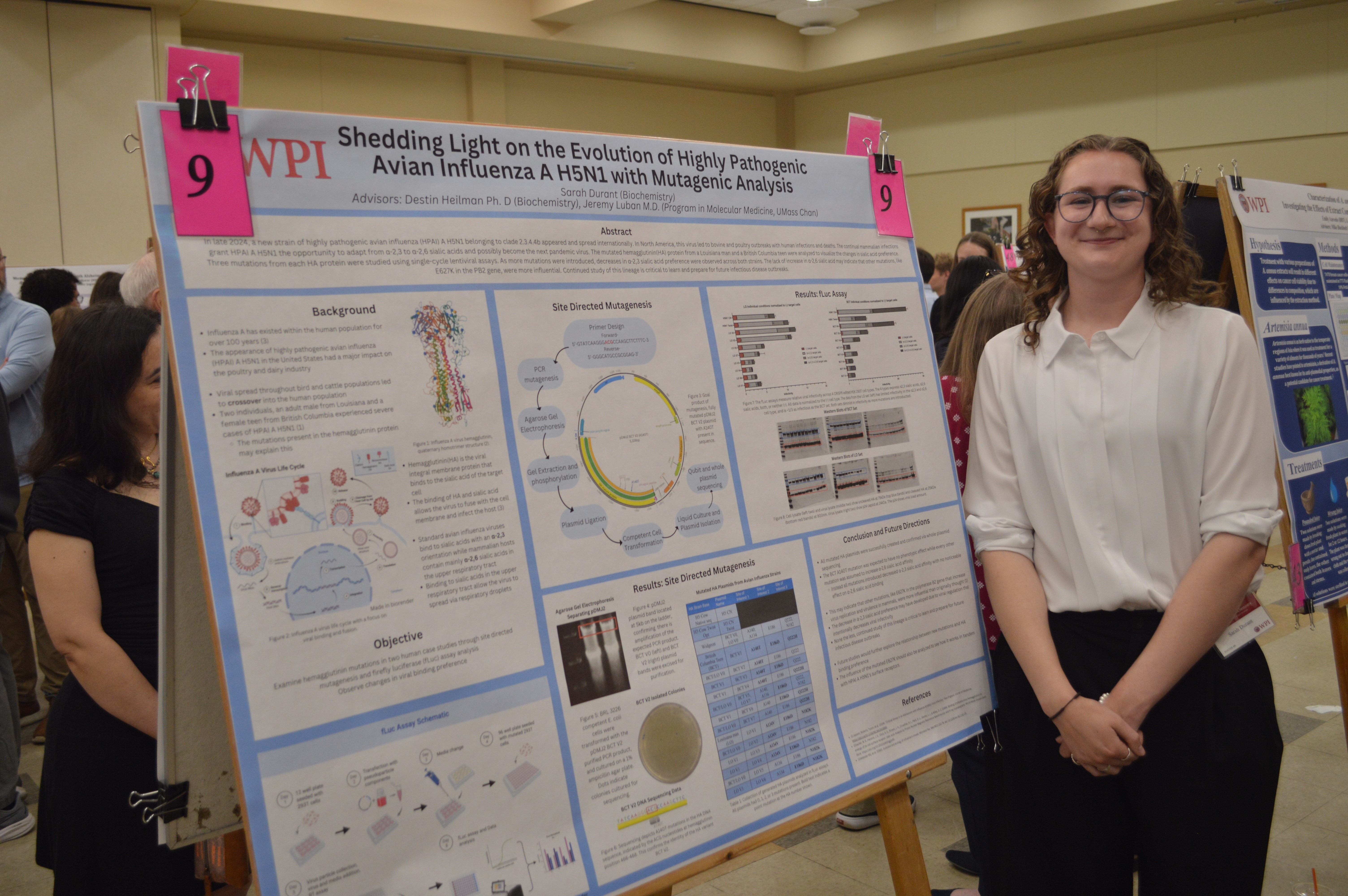
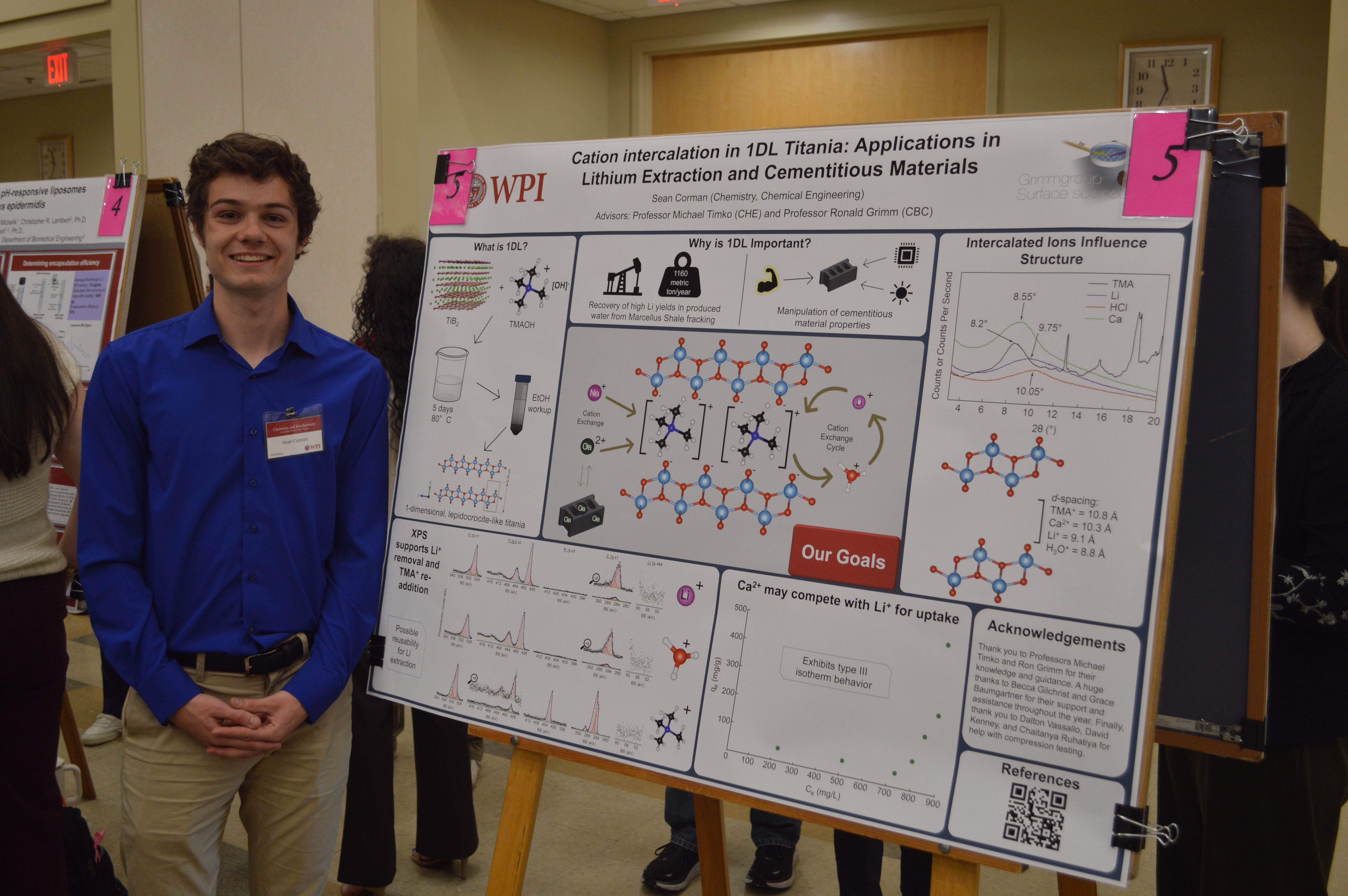
Undergraduate Research Projects Showcase
The 2025 Undergraduate Research Project Showcase was a celebration of research, design, and creative theses—a requirement of every graduating senior through the Major Qualifying Project (MQP)—takes place each spring on campus. Student teams representing all academic departments present their work to their faculty advisors, external sponsors, and the community-at-large, and the public is invited. The chemistry and biochemistry department had extraordinary projects with thorough research from each participating student, as well as two exemplary MQP students who were awarded the Major Qualifying Project Awards. You can see all award winners in the exciting spotlight section below!
Faculty Highlights

Contributions to Systems Science and Engineering by Prof. Kazantzis Are Taught at Harvard
The accurate reconstruction of the state and the attendant reliable characterization of the dynamic behavior of any complex process system assumes central importance in the fields of systems science and engineering. A novel state estimation method (currently recognized as the Kazantzis-Kravaris-Luenberger (KKL)-observer in the relevant literature) has been incorporated into a textbook and a set of notes developed by Prof. H. Yang for a graduate course entitled: “Optimal Control and Estimation” offered at the J. A. Paulson School of Engineering and Applied Sciences (SEAS), Harvard University

Professor Christina Bailey-Hytholt receives 2023 Extraordinary Women Advancing Healthcare Award from The Women’s Edge
Christina Bailey-Hytholt, Assistant Professor Chemical Engineering, receives a 4th Annual Extraordinary Women Advancing Healthcare Award from The Women’s Edge (formerly The Commonwealth Institute), the leading nonprofit organization devoted to advancing women leaders. This award is the first of its kind in the nation, reaching across diverse sectors of healthcare – from life sciences, healthcare education and systems, to healthcare foundations, patient care, and public health.

Professor Elizabeth Stewart Receives NSF Engineering Research Initiation Award
Elizabeth Stewart, assistant professor of chemical engineering, received a $200,000 National Science Foundation (NSF) Engineering Research Initiation (ERI) grant. Stewart’s grant will engineer an innovative microfluidic model to look specifically at how bacteria build biofilms on catheters inserted into blood vessels.

Professor Christina Bailey-Hytholt receives the American Institute of Chemical Engineers (AIChE) 35 Under 35 Award
Christina Bailey-Hytholt, Assistant Professor of Chemical Engineering, was selected for the prestigious AIChE 35 Under 35 Award. She is one of six awardees in the Bioengineering category, recognized for her impactful work on developing new biomaterials and drug delivery vehicles influencing fundamental understanding and treatment strategies for reproductive health complications.

Professor Eric Young to lead Synthetic Biology course at Cold Spring Harbor Laboratory
Eric Young, the Leonard P. Kinnicutt Assistant Professor of Chemical Engineering, will instruct a Synthetic Biology course at Cold Spring Harbor Laboratory from July 26 - August 8, 2023. The course will focus on how the complexity of biological systems can be combined with traditional engineering approaches to result in new design principles for synthetic biology.

Professor Christina Bailey-Hytholt named to Forbes 30 under 30
Christina Bailey-Hytholt, Assistant Professor of Chemical Engineering, was named to the 2022 Forbes 30 under 30 list. She was recognized for her ground-breaking research on the placenta, an organ that has historically received little scientific attention compared to its importance for everyone living today. Congratulations!!!

Professor Andrew Teixeira awarded National Science Foundation CAREER Grant
Andrew Teixeira, Assistant Professor of Chemical Engineering, was awarded a prestigious NSF CAREER grant for his project entitled "Nitrogen Activation: Splitting Kinetic Cycles and Breaking Energetic Barriers with Pulsed Catalysis." The five year award will develop a new catalytic strategy for overcoming thermodynamic and kinetic barriers by dynamically operating a catalytic cycle at various temperatures and thermodynamic environments.

Professor Eric Young awarded National Science Foundation CAREER Grant
Eric Young, the Leonard P. Kinnicutt Assistant Professor of Chemical Engineering, was awarded a prestigious NSF CAREER grant for his project "A Red Yeast Cell Factory." The five year award will enable the bioengineering of basidiomycetes, a group of fungi essential to many important biological processes yet lacking tools available for other yeast.

Mike Timko on designing bioreactors for supercritical CO2
Associate Professor Mike Timko’s collaborative work with researchers at MIT was recently published in Nature Communications. The paper, titled "Engineered microbial biofuel production and recovery under supercritical carbon dioxide," describes organism engineering and separations processes to produce biofuels in supercritical CO2. Congratulations to Professor Timko, his research team, and collaborators on this innovative work!

Professor Susan Zhou on Designing Biosensors
Researchers in the lab of Professor Hong Susan Zhou are developing a biosensor that doctors and nurses can use to quickly detect Clostridium difficile, a dangerous and sometimes fatal gastrointestinal infection. The work is funded by the National Science Foundation.

Contributions to systems and control theory by Professor Kazantzis are recognized by the scientific community
The work of Professor Nikolaos K. Kazantzis on nonlinear state estimation and observer design has been recognized and will be presented as a tutorial session by other members of the systems community at the 2022 European Control Conference in London.

Professor Deskins - Molecular modeling for the future of energy
Professor Deskins, in collaboration with WPI Mechanical Engineering Professor Pratap Rao, received funding to train clean energy innovators.
Professors Deskins and Rao also were awarded NSF funding to increase the efficiency of catalysts for the production and utilization of carbon-free or carbon-neutral fuels via electrical-to-chemical and solar-to-chemical processes. Professor Deskins, in collaboration with Professor Xiaowei Teng at the University of New Hampshire, is also funded to develop efficient, cleaner methods to produce hydrogen, a valuable fuel and chemical feedstock.

Professor Roberts on improving anticancer drug production
Department of Chemical Engineering Professor Sue Roberts, Department Head, was highlighted in the Worcester Telegram! The new genetic engineering technique developed by her research group could improve plant cell based production of the important anticancer drug paclitaxel (Taxol).
Prof. Michael Timko and PhD student Elizabeth Belden featured on NBC 10 Boston and GBH All Things Considered for their research looking to turn plastic into fuel
NBC 10 Boston interviews Professor Michael Timko and PhD student Elizabeth Belden about their innovative research turning plastic into fuel. Check out the report here!
WGBH interviews Professor Michael Timko on All Things Considered. Listen here!

Student Impact

Student Spotlight
From the University Magazine

Using Data for a Livable Planet
Caitlin Swalec ’16 draws strength from her love of ocean swimming as she works to decarbonize steel, chemicals, and concrete industries worldwide.

Untapped Energy
WPI researchers use novel ideas to tackle the urgent need for clean energy.
Donor Profile

Fellowships Honor Professor Ed Ma’s Legacy
Donors, in conjunction with the Ma family, enthusiastically support the Yi Hua (Ed) and Maria Ma Graduate PhD Fellowship in Chemical Engineering. The late Yi Hua Ma was a professor and department chair of chemical engineering.

Randall D. Partridge ’72
This donor’s endowed research fund honors Professor Alvin H. Weiss and will help WPI chemical engineering students follow their research dreams as he was able to do while at WPI and well beyond.

Advance with the BS/MS Dual Degree Program
Fast-track your education and career with the BS/MS program by earning a dual degree―an accelerated academic pathway to both a bachelor’s degree and a master’s degree. Saving both time and money while building advanced knowledge and skills could help you stand out in today’s competitive job market. Discover more about the BS/MS program and your options to earn a BS/MS dual degree at the links below.



